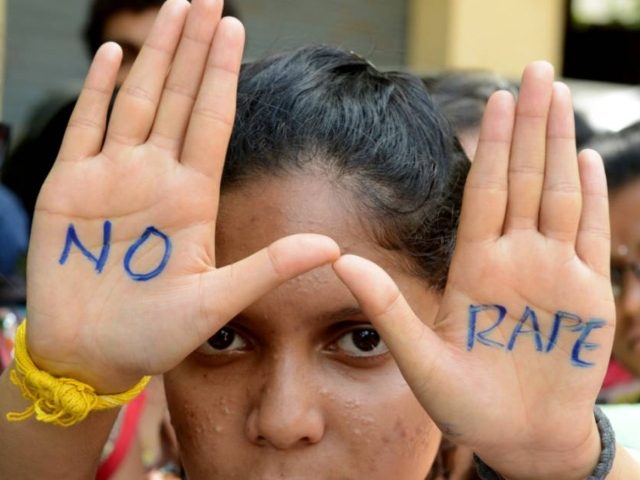Convicted rapists in Bangladesh will now face the death penalty, the country’s government announced on Monday.
Bangladesh Cabinet Secretary Khandker Anwarul Islam confirmed to reporters on Monday that “the cabinet had approved a bill ruling that anyone convicted of rape would be punished with death or ‘rigorous imprisonment’ for life,” the Guardian reported.
The cabinet amended the country’s Women and Children Repression Prevention Bill to include the death penalty as a punishment for convicted rapists. The amendment went into effect starting Tuesday, according to Bangladesh Law and Justice Minister Anisul Huq. Prior to the change, convicted rapists faced a maximum punishment of life in prison under the bill.
Video footage of a young woman “being violently assaulted and gang-raped by a group of men in the south-eastern Noakhali district” of Bangladesh went viral across the country after it was posted to Facebook on October 4, according to the report. Authorities have so far arrested eight people in connection with the case.
The video sparked national outrage and protests demanding stricter penalties for rapists. Bangladesh Prime Minister Sheikh Hasina faced “an internal outcry within the ruling party’s ranks over her perceived inaction on the matter,” according to the Indian news agency WION.
A few weeks before the assault video went viral, “several members of the Bangladesh Chhatra League, the student wing of the governing party, were arrested and charged with gang-raping a woman in the northern town of Sylhet” according to the Guardian. The close timing of the two alleged gang-rapes caused a larger than usual public backlash, with protesters across the country demanding stauncher criminal punishment for rape.
Human rights group Amnesty International noted last month that the problem surrounding sexual assault in Bangladesh was not necessarily a lack of severity in terms of criminal punishment for rape, but rather a failure of the nation’s courts to bring convictions in rape cases. Bangladesh women’s rights organization Naripokkho “examined the incidents of reported rape cases in six [Bangladesh] districts between 2011 and 2018 and found that out of 4,372 cases, only five people were convicted.”
Local human rights group Ain-o-Salish Kendra found that “between January and September 2020, at least 975 rape cases were reported in Bangladesh, including 208 gang-rapes.”
Many women in Bangladesh are reluctant to report sexual assaults because they fear retribution, meaning the true number of rape cases may be much higher. A 19-year-old Bangladeshi student named Nusrat Jahan Rafi was murdered in April 2019 after she accused the headteacher at her state-funded Islamic seminary of sexual harassment. Rafi was “doused in kerosene and set alight on the order of the headteacher” following her report of the alleged assault. She suffered 80 percent burns on her body and later died of her injuries.
Although Bangladesh was founded as a secular state in 1971, it later re-established Islam as the state religion. Secularist groups petitioned the Bangladesh supreme court in 2016 to scrap Islam as the state religion, but the High Court rejected the petition.

COMMENTS
Please let us know if you're having issues with commenting.